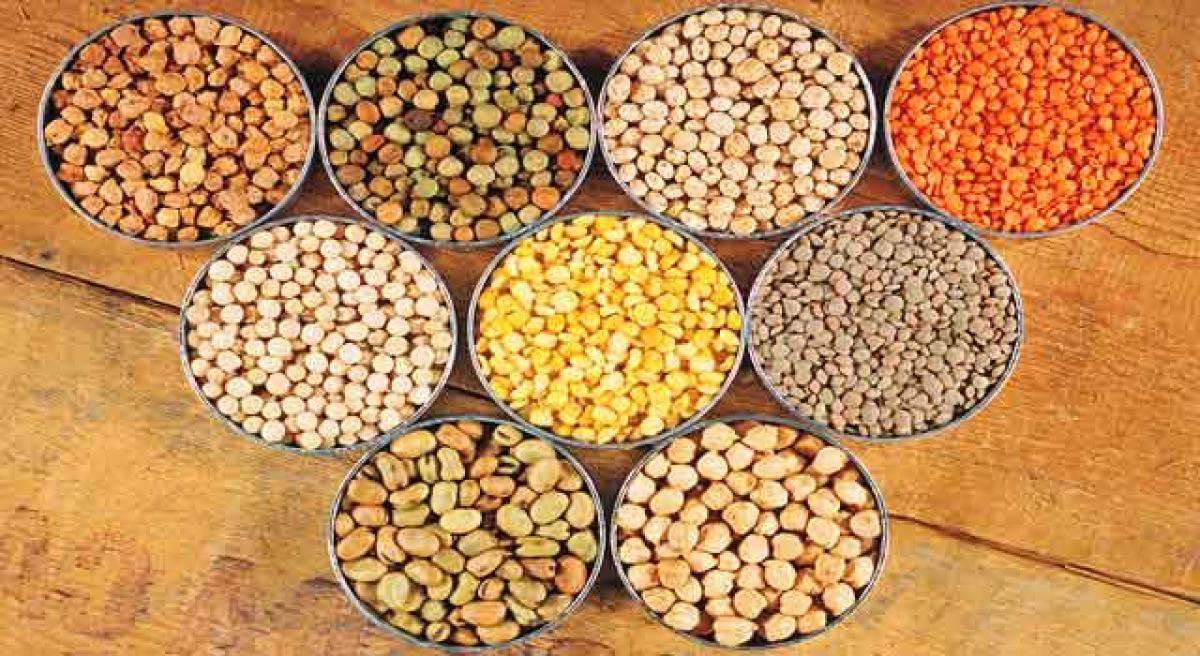Taming the prices

The soaring prices of vegetables, pulses and other essential food commodities are hurting common man badly. It cannot be brushed aside as a seasonal aberration. The structural factors that cause such spiraling prices need an immediate policy attention.
The soaring prices of vegetables, pulses and other essential food commodities are hurting common man badly. It cannot be brushed aside as a seasonal aberration. The structural factors that cause such spiraling prices need an immediate policy attention.
Vegetables are highly perishable commodities. Efficient supply side management is vital to curb sudden fluctuations in demand and supply. Investment in logistics infrastructure is essential to correct this mismatch.
Special horticulture zones with the active participation of farmers can effectively link the producer and the consumer. Farmers sell their produce at throwaway prices while the consumers face the burden of price rise.
Greater research and extension is required for producing high-yielding and longer shelf life vegetables and fruits.
Middlemen exploit both farmers and consumers. The initiative like Rythu Bazaars can overcome this problem. But reports indicate that the middlemen are creeping into these bazaars in the guise of farmers.
Governments can convert vacant government lands in cities for cultivation of vegetables and fruits by urban self-help groups comprising poor women. Such an initiative of urban agriculture would yield multiple dividends.
Besides economically empowering the poor women, it could ensure nutritional security to the urban populace by providing vegetables at affordable prices. This can also help prevent encroachment of government lands besides contributing to the ecological and aesthetic refurbishment of cities.
Effective agricultural planning has to be put in place to ensure adequate and timely supply. Such a comprehensive strategy should encompass incentivising the horticulture production besides regulating imports and exports.
Diversity in food consumption should be encouraged to prevent undue demand for a particular type of food commodities.
As the economy prospers, demand for high-quality food commodities like vegetables, fruits, pulses etc. is bound to increase. According to the Bennett’s Law in Economics, as people become wealthier, they change their dietary habits, shifting their tastes from simple starchy plant-dominated diets to a variety of food items, including a range of vegetables, fruits, protein-rich food and dairy products.
Only long-term strategies can anticipate the demand and plan accordingly. Innovative methods like roof-top vegetable production have to be promoted. The prices skyrocket also due to hoarding and black marketing. A sledgehammer of punitive enforcement is needed to curtail the illicit trade in food commodities.
Immediate measures to tame the markets can include cleansing wholesale markets of cartels as well as intricate collusion between various players. Often commission agents charge exorbitant margins that go unchecked due to corrupt market officials.
A majority of Indian retailers are selling vegetables at prices which are significantly higher than the wholesale price index (WPI), reveals the latest Assocham study on “Vegetables Wholesale and Retail Price Discrepancy: 2016.”
Normally, the difference between WSP and retail prices on an average stays around 30% but it has been much more. Keep a close check on the margin of profit between purchases from farmers and the final price at which it is sold in the retail market as retail prices actually pinch the consumer.
Several macro-economic factors like higher cost of production and transportation also contribute to price rise. The rising cost of fuel, fertilisers, seeds etc., creates cost push inflation. Instead of occasional heart beating, a concerted policy response is the need of the hour.















